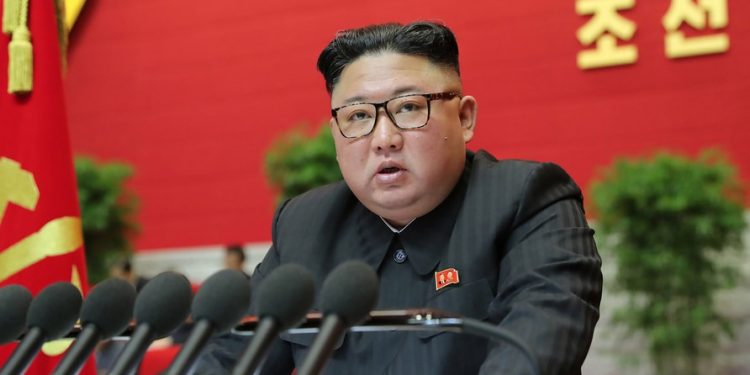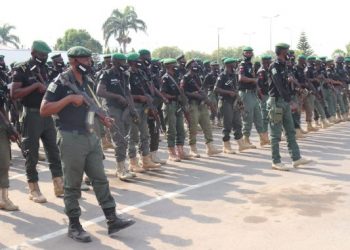SEOUL, SOUTH KOREA – North Korean leader Kim Jong Un has ripped into the performance of his Cabinet and fired a senior economic official he appointed a month ago, saying they’d failed to come up with new ideas to salvage an economy in decay.
The report by state media on Friday comes during the toughest period of Kim’s nine-year rule. The diplomacy he had hoped would lift U.S.-led sanctions over his nuclear program is stalemated, and pandemic border closures and crop-killing natural disasters last year deepened the damage to an economy broken by decades of policy failures, including a crippling famine in the 1990s.
The border closure caused trade volume with China, the main source of support for North Korea’s economy, to drop by 75% in the first 10 months of the year. Raw materials shortages caused factory output to plunge to its lowest level since Kim took power in 2011, and prices of imported foods like sugar quadrupled, according to South Korea’s spy agency.
Economic perfect storm
Some analysts say the current challenges may set up conditions for an economic perfect storm in the North that destabilizes markets and triggers public panic and unrest.
The current challenges have forced Kim to publicly admit that past economic plans hadn’t succeeded. A new five-year plan to develop the economy was issued during the ruling Workers’ Party congress in January, but Kim’s comments during the party’s Central Committee meeting that ended Thursday were rich with frustration over how the plans have been executed so far.
During Thursday’s session, Kim lamented that the Cabinet was failing in its role as the key institution managing the economy, saying it was producing unworkable plans while displaying no “innovative viewpoint and clear tactics.”
He said the Cabinet’s targets for agricultural production this year were set unrealistically high, considering limited supplies of farming materials and other unfavorable conditions. Targets for electricity production were set too low, he said, showing a lack of urgency when shortages could stall work at coal mines and other industries.
“The Cabinet failed to play a leading role in mapping out plans of key economic fields and almost mechanically brought together the numbers drafted by the ministries,” the KCNA paraphrased Kim as saying.
The KCNA also said that O Su Yong was named as the new director of the Central Committee’s Department of Economic Affairs during this week’s meeting, replacing Kim Tu Il who was appointed in January.
10.1 million people food insecure
During the January party congress, Kim Jong Un called for reasserting greater state control over the economy, boosting harvests and prioritizing the development of chemicals and metal industries. He also vowed all-out efforts to bolster his nuclear weapons program in comments that were seen as an attempt to pressure the new Biden administration.
To truly revive the economy, analysts say, the country needs to invest heavily in modern factory equipment and technology, and to either import more food or improve farm productivity: a U.N. assessment in 2019 found that 10.1 million people, or 40% of the population, were food insecure and in urgent need of assistance. The border closure has hindered updates on the situation, but output of staple grains had plateaued since surging a few years ago, when farmers were allowed to retain more of their harvests instead of handing them entirely over to the government.
The U.N. Food and Agricultural Organization estimates that nearly half of North Koreans are undernourished.
The metal and chemical industries are crucial for revitalizing stalling manufacturing, which has been decimated by U.N. sanctions and disrupted imports of factory materials amid the pandemic. However, most experts agree that North Korea’s new development plans aren’t meaningfully different from its previous ones that lacked in substance.
South Korean intelligence officials say there are also signs that the North is taking dramatic steps to strengthen government control over markets, including suppressing the use of U.S. dollars and other foreign currencies.
Such efforts might compel people to exchange their foreign currency savings for the North Korean won. They demonstrate the government’s sense of urgency over its depleting foreign currency reserves, analysts say.







